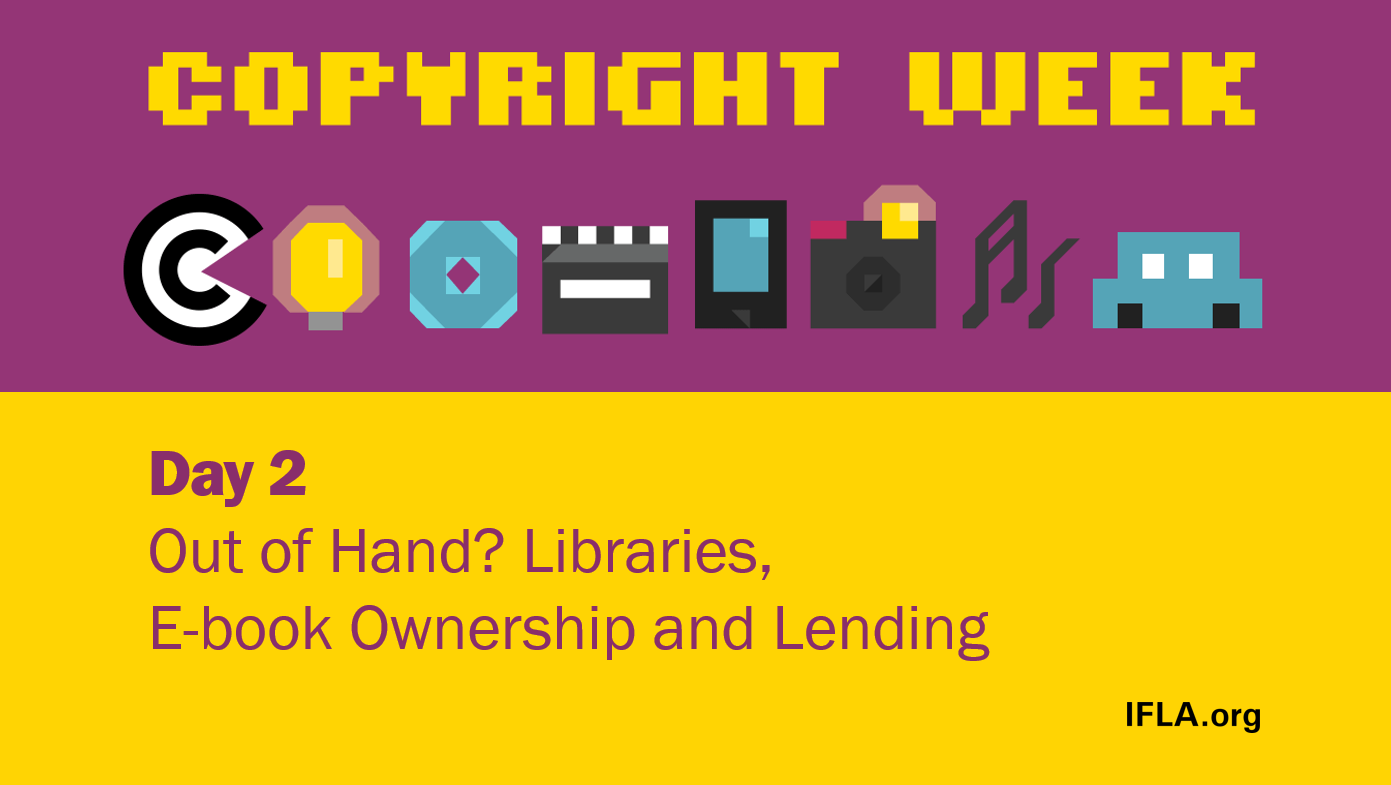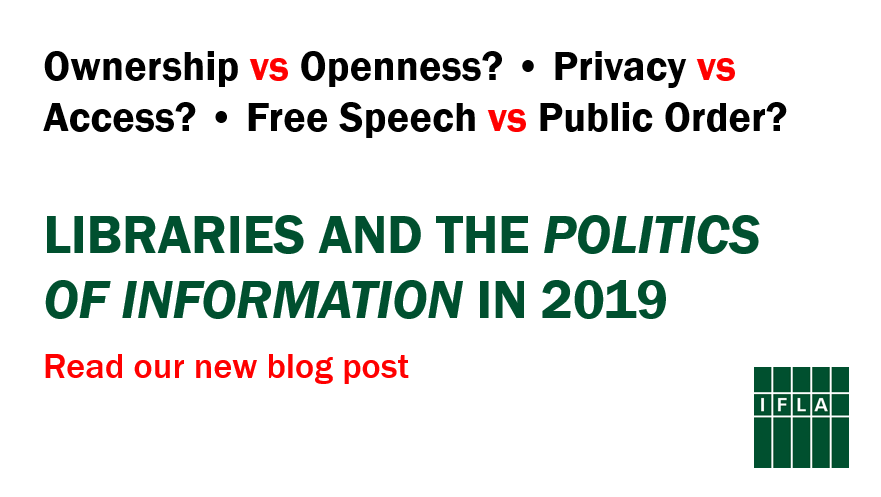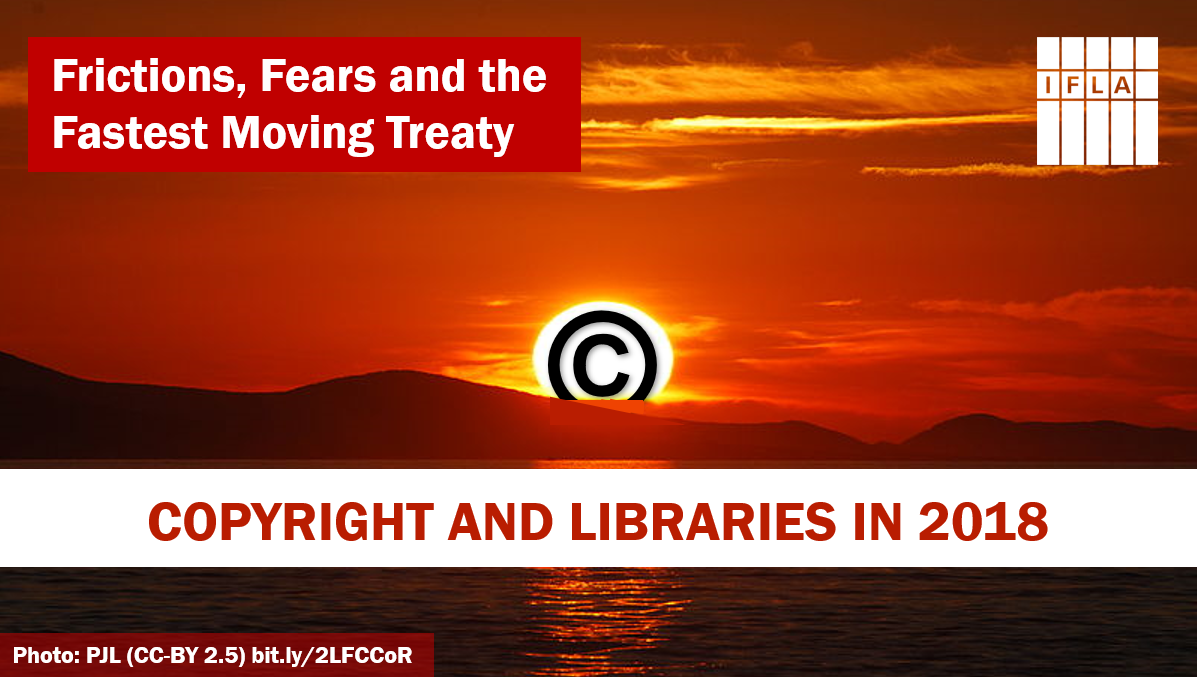
At the beginning of the year, we posted about copyright for libraries in 2018, looking into ongoing and upcoming copyright reforms in order to prepare our 2018 advocacy efforts. There were areas of promise, with helpful draft legislation on the table in countries such as South Africa or Japan. But there were also concerns, with trends towards placing greater limitations on uses of works by libraries in the digital world (read this post on trends in 2018).
We’ll open 2019 with two more blog posts: one similar to the overview on copyright for libraries in 2018, and one on trends for the upcoming year. But today, we close the current year, looking back at how far we’ve got in 2018.
Fear: Uncertainties Drive Increasingly Passionate Positions in Copyright Debates
2018 has been marked by continued intensification of discussions around copyright. Much of this is down to the development of new possibilities – and uncertainties – created by changing means of creating, accessing and sharing works.
For example, while photocopying is still key for access to information in many places, in others it is increasingly irrelevant. In its place, the value of data about how – and to what extent – works are used has encouraged greater tracking of behaviour.
These have combined with the unique nature of copyright, according to which any original work is protected, without any requirement for registration, for a very significant period of time, to create instabilities.
As a result, existing businesses have been forced to reposition themselves, and reallocate resources. Those who do not move risk becoming obsolete and disappearing. It is understandable that there is a desire to buy time in order to make the necessary changes.
However, this has also led to efforts to impose strict controls, often justified by the concern that a single copy of a work ‘in the wild’ could spell the end of a market. Efforts to promote individual user authentication to access scientific works, as well as questionable applications of blockchain could have some impact on piracy, but at significant cost to privacy and other use rights.
There are also a growing number of businesses looking at the potential of blockchain for copyrighted works, which raises important questions about user privacy, as well as the protection of exceptions and limitations to copyright.
Friction: The Changing Environment for Library Advocacy Around Copyright
There has also been a crucial change in the lobbying and advocacy environment. Whereas previously libraries and other groups representing users were very much at the front of copyright debates in favour of exceptions and limitations, there are now highly profitable internet platforms leading the charge.
This has often left libraries stuck in the middle, between these new platforms, and more established companies in the publishing or music sectors. To escape from this trap, they have had to invest more time in fighting against myths and unfair accusations, often centred around the idea that they are working to protect the interests of major internet platforms.
They have had to offer reminders, time and time again, of their contribution to innovation and creativity through democratic access to information, as well of course through the billions they spend on content. Too often, they have had to face personal attacks.
Recent research in Europe, fortunately, has started to throw light on deliberate efforts to use association with tech companies to weaken the arguments of libraries and others working for the interests of users. They have also shown the far greater lobbying efforts made by those who wish to restrict access.
Thanks to the efforts of engaged librarians giving their time to advocate for libraries, copyright legislation which will enable libraries to fulfil their missions in a digital age is nonetheless advancing in many countries. Their perseverance in these passionate struggles has been key to achieving progress.
The Fastest-Moving Treaty: The Impact of Marrakesh
A high point of the year is certainly the progress towards universal implementation of the Marrakesh Treaty. This looks to facilitate access to books and other documents for people with print disabilities. With 48 countries having completed the process to become full members (including the European Union as a single signatory), it has become the fastest-ratifying Treaty in WIPO’s history.
Crucially, Marrakesh shows the impact that an international instrument (on exceptions and limitations to copyright) can have on copyright legislation worldwide, as the only way to ensure cross-border collaboration, which is more and more needed and technologically possible in the digital world.
Worryingly, however, there are signs of efforts to spread untruths about what the Treaty says, which risk seriously restricting the impact that it will have at the national level. IFLA has therefore published a monitoring report from countries which have ratified the Treaty (or are in the process of doing so), and how (or whether) they have adapted their national laws. The overview is available on the IFLA website, and updates will be published regularly.
IFLA has also released “Getting Started”, a guide for librarians in countries where the Treaty has been implemented, helping them to make full use of its provisions. There is considerable hope that good laws and good implementation, as well as efforts to promote accessible publishing in the first place, will lead to real improvements for people with print disabilities.
What has happened since January 2018: legislative changes
Africa
Nigeria – The Nigerian copyright bill was approved by the Cabinet. We are still waiting for details on what it contains.
South Africa – After years of discussion, the South African copyright amendment Bill was adopted by the South African National Assembly on 5 November. The process is not completely over, as the Bill will now be sent to the National Council of Provinces for concurrence, which is likely to happen early 2019. More information is available in this blog post.
Kenya – The Copyright Amendment Bill was introduced in 2017. It contains provisions towards the implementation of the Marrakesh Treaty, provisions on the regulation of collective management organisations, fair dealing for the purposes of scientific research, private use, criticism or review of the reporting of current events, quotation, incidental inclusions, and an exception for the reproduction of works in libraries and archives, among others. It was subject to a vote in the Senate in October – we will provide further information when available.
Lesotho – A copyright law review was launched which should lead to the implementation of the Marrakesh Treaty.
Zimbabwe – Parliament ratified the Marrakesh Treaty in January 2018.
Asia-Pacific
Australia – A new copyright bill was passed at the end of June to extend safe harbour provisions to libraries and archives. These limit the damages that online service providers pay when their clients use their services to infringe copyright, as long as the service providers take steps to remove content that they know is infringing. Previously – ironically – safe harbour had only been available for commercial ISPs in Australia, not to others who provide the same services. Those left out included libraries and archives, universities, schools, and online platforms (e.g. local versions of YouTube, Facebook etc), which are now covered. For more information, check the ALCC’s press release.
Furthermore, the Government called for submissions on the Copyright Modernisation Bill. This time the government consulted on a few specific aspects of Australia’s copyright regime. The Government sought to understand whether there is general support for several provisions, namely flexible exceptions to copyright, access to orphan works and contracting out of copyright exceptions. More information is available here, together with all submissions sent. IFLA’s is available here and ALCC’s is here.
Taiwan – Taiwan, which already has a fair use provision in its law, has made a small amendment which will make it clear that fair use exists independently of additional, statutory exceptions to copyright.
Japan – A new copyright law has been adopted, allowing for the ratification of the Marrakesh Treaty implemented.
Thailand – The King of Thailand has approved the necessary laws for the implementation of the Marrakesh Treaty.
New Zealand – An issues paper was issued on a planned copyright reform, with submissions welcome until 5 April 2019. There will be separate legislation to allow New Zealand to ratify Marrakesh. The paper is very comprehensive, with a full section on libraries, and covers many other relevant issues. There is acknowledgement that introducing fair use could be a result of the consultation, but at this stage the paper requests a focus on how the current Act is functioning.
Singapore – There was a first public consultation in October 2016 with 16 proposals, including an expiry date for copyright protection of unpublished works, use of orphan works, educational exceptions to reflect digital education, facilitating the work of libraries and archives, museums and galleries, provisions for print-disabled users, among others. A second consultation took place in May 2017. A White Paper is due in the first months of 2019.
Europe
EU Copyright in the Digital Single Market – Discussions around the proposal for a Directive in the Digital Single Market are still ongoing, now between the three institutions involved: the Council of Ministers, the Commission and the Parliament. They are hoping that an agreement will be reached early next year. Member states will then have a period – likely just one year – to adapt their national laws. There are currently positive provisions for cultural heritage and research institutions (text and data mining, preservation, digital education, out of commerce works), but also worrying articles that might hamper access to information.
EU Directive and Regulation on Marrakesh – After the entry into force of the EU Directive and Regulation the instrument of ratification was deposited at WIPO, and several member states have transposed the Directive. See the Marrakesh overview for more information.
United Kingdom – The official start-date for e-PLR in the UK was the 1 July. The official government press release is available here.
Denmark – Denmark was the first country where PLR was paid based on eBooks & digital audio books.
Ireland – A draft bill was published in June 2018. This includes proposals to “allow libraries, archives and educational institutions to make copies of work in their collections for the purposes of preservation and inclusion in catalogues for exhibitions; extend existing copyright exemptions to: (i) promote not for profit research, including by introducing a text and data mining exception; (ii) widen the scope of the fair dealing exemption in the context of news reporting; and (iii) allow the creation of a voluntary digital deposit of books”. It is currently in discussion in committee (source).
Switzerland – A copyright working group reached an agreement in various issues related to the modernisation of copyright law in March 2017, and this has been discussed in committee in the Federal Parliament. It contains provisions relating to orphan works, cataloguing, extended collective licensing, research exceptions, and will allow for the implementation of the Beijing and the Marrakesh treaties. Proposals to introduce public lending right, as well as a right for researchers to publish their own works open access (regardless of contracts signed), and steps to make it possible to identify the IP addresses of people suspected of piracy were rejected.
Latin America and the Caribbean
Mexico – The Mexican Senate passed changes to copyright law that would allow for content to be taken offline even if there are only suspicions of infringement (i.e. without proof). More information is available at the Creative Commons webpage.
Colombia – The changes from the recent copyright reform were adopted. Some of the most relevant points for libraries: an orphan works provision, based on a mandatory search; a lending exception (with no explicit reference to digital lending, which does not necessarily exclude it). There are some negative additions, such as an extension of the term of protection (from 50 to 70). The Marrakesh provisions will be adopted through another reform.
Uruguay
Libraries and others have been active in setting out what changes they would like to see in the law. There has been a particular focus on taking the necessary steps to ratify the Marrakesh Treaty.
North America
Canada – The Canadian Parliament continues to carry out its review of the country’s copyright laws, taking evidence from different sides of the debate. Libraries are arguing for the current fair dealing provisions to be safeguarded, as well as engaging in discussions around copyright and indigenous knowledge, technological protection measures, and contract override. In parallel, legal processes involving Canadian universities, education ministries and the reprographic rights collecting society Access Copyright continue, as does a review of how copyright royalties are defined. You can read more on the pages of the Canadian Association of Research Libraries and the Canadian Federation of Library Associations. Results of the review are expected towards the middle of next year, and will inform policy choices made by whoever wins the elections due in October 2019.
United States – there was welcome progress on Marrakesh with Presidential sign-off for legislation ensuring that the Treaty can be implemented nationally. Further reforms considered questions about the situations in which technological protection measures can be removed (positive), and whether the Register of Copyrights should be a presidential appointment or left up to the Library of Congress.
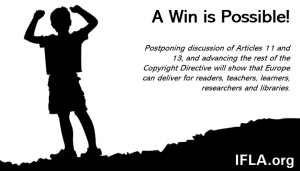 Discussions around the European Union’s draft Directive on copyright in the Digital Single Market are as tense as ever. Strong divisions have emerged between and among Member States and Members of the European Parliament around controversial proposals for a new press publishers’ right (Article 11) and an (effective) obligation on internet platforms to filter content (Article 13).
Discussions around the European Union’s draft Directive on copyright in the Digital Single Market are as tense as ever. Strong divisions have emerged between and among Member States and Members of the European Parliament around controversial proposals for a new press publishers’ right (Article 11) and an (effective) obligation on internet platforms to filter content (Article 13). The Good – Achievements So Far
The Good – Achievements So Far However, there are already complaints from some who had previously supported Articles 11 and 13, who are unwilling to accept anything less than the highly flawed original proposals.
However, there are already complaints from some who had previously supported Articles 11 and 13, who are unwilling to accept anything less than the highly flawed original proposals.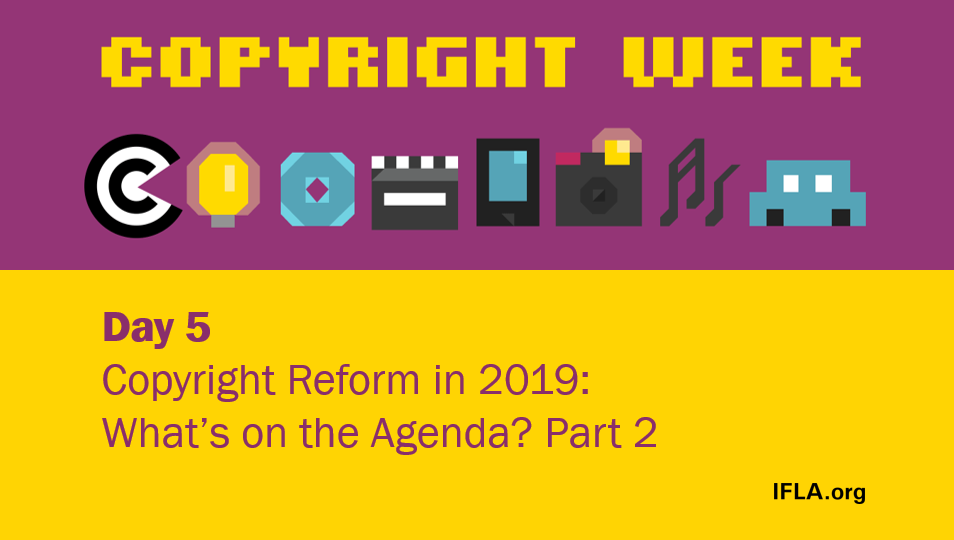
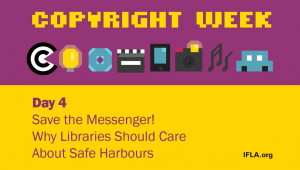 Discussion about questions of free speech and access to information is traditionally based around a divide between creators and users – or authors and readers in the case of books.
Discussion about questions of free speech and access to information is traditionally based around a divide between creators and users – or authors and readers in the case of books.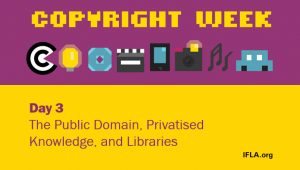 1 January 2019 saw a greater than usual focus on the importance of the public domain. For the first time in 20 years, new works started to go out of copyright in the United States, following a 20 year hiatus.
1 January 2019 saw a greater than usual focus on the importance of the public domain. For the first time in 20 years, new works started to go out of copyright in the United States, following a 20 year hiatus.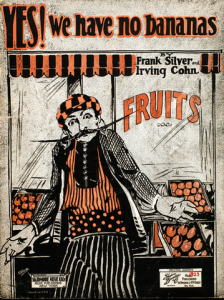 Libraries, the Commons, and the Not-100%-Private
Libraries, the Commons, and the Not-100%-Private